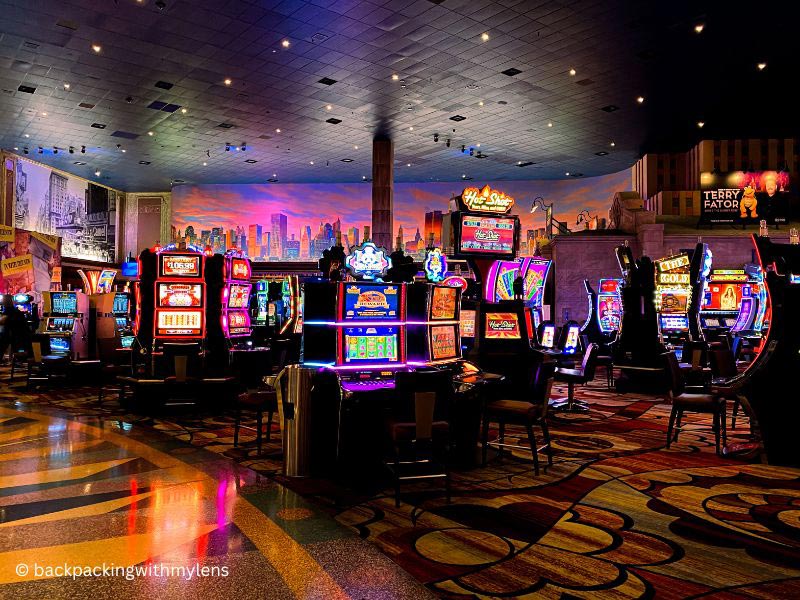
Casino games have captivated for years a wide range of players, delivering not only excitement through chance but also a distinct experience crafted for various kinds of players. Including analytical thinkers who excel at calculation and skill to recreational players seeking entertainment, casinos recognize the subtleties of their audience and develop games that meet these differing interests.
In delving into the universe of casino gaming, we discover a variety of choices that attract every kind of player. Poker tables with high stakes attract competitive individuals, while exciting slot machines attract those seeking immediate satisfaction. Whether it be the allure of winning big or simply savoring the social atmosphere, casinos create their game offerings to ensure that all players find a place where they feel welcome and involved. Comprehending how these games cater to different kinds of players can enhance not only our understanding of them but also how we approach selecting which games to play.
Grasping Player Types
In the multifaceted world of gambling entertainment, participants can be classified into specific categories based on their motivations and likings. f8bet com These player kinds range from the relaxed and communal gamers, who enjoy the fun value and social connections that gambling provides, to the more tactical and calculated players, who seek to increase their chances and profits. Comprehending these different kinds is essential for casinos to tailor their services and build immersive settings.
One frequent kind is the group-oriented player, who considers casino games as a form of group interaction and enjoyment rather than a solemn gambling activity. These gamers often enjoy games that encourage engagement and camaraderie, such as blackjack. Their attention is on the journey rather than the outcome, so vibrant environments and collective moments are what they hold dear the most.
On the opposite end of the range, tactical players are inspired by competition and the quest of expertise. They tend to be drawn toward games that necessitate tactical planning and strategy, such as poker, where their skills can affect the conclusion. This kind often engages with the games on a more profound level, utilizing expertise and approaches to secure an edge. Comprehending these drives allows casinos to create settings and game selections that cater to each player’s distinct likings.
Strategies for Game Design
Gambling games are created with varied player types in mind, utilizing multiple strategies to draw in and capture them. For recreational players, the focus is on simplicity and clarity. Games like slots are frequently aesthetically pleasing with straightforward mechanics. This enables players to enjoy the experience without a difficult learning curve, fostering an welcoming atmosphere. The vibrant hues, catchy sounds, and thematic elements create a fun environment where players can quickly get involved and entertained.
For tactical players who enjoy a deeper level of engagement, games such as poker and 21 offer complexity and skill-based elements. These games incorporate strategy and tactical choices, appealing to players who excel on competition and want to utilize their cognitive abilities. The design of these games regularly includes complex rules and mechanics that challenge players to refine their skills and create strategies over time, creating a fulfilling experience for those who enjoy perfecting the game.
Additionally, social players are catered to through games that highlight engagement and community. This comprises live dealer games and multiplayer formats, which cultivate a sense of camaraderie among players. The design of these games often includes communication tools and communal aspects, allowing players to connect and exchange insights. By building an environment where participation is encouraged, casinos can effectively engage community players, making the gaming experience more pleasurable and unforgettable.
Enhancing Player Engagement
Betting games have evolved notably to provide a significantly immersive atmosphere for players. Game developers focus on immersive visuals, immersive sound effects, and creative gameplay mechanics that pull gamers into the gaming environment. By utilizing technology, such as virtual reality and enhanced reality, gaming establishments ensure that gamers feel as if they are part of a exciting experience, enhancing in addition to the fun of the activities but also the complete satisfaction of being in a casino.
Player interaction is another key element in improving participant experience in casino titles. Many options are designed to facilitate interaction among gamers, whether through multiplayer modes or messaging options. This social aspect attracts participants who like connecting with other participants while competing, promoting a community vibe community. In addition, social features can feature ranking systems, tournaments, and rewards for cooperative gaming, which capture competitive gamers and motivate them to come back for additional.
In conclusion, personalization plays a crucial role in adapting the experience for different gamer demographics. Betting companies and game developers examine gamer activities and likes to offer tailored game suggestions and benefits. By understanding the distinct tastes of participants, casinos can provide tailored promotions, rewards, and new game releases that resonate with each participant, thus boosting their overall satisfaction and commitment to the betting establishment.
